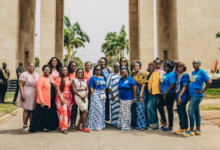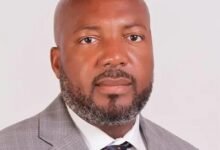Reflections on some portions of the constitution as records as regards the executive
There may be at this time of our constitutional and democratic evolution and dispensation certain matters that should engage our attention in respect of the Constitution, which we adopted, enacted and gave to ourselves “in the name of the Almighty God”, and which came into force on Thursday, January 7, 1993.
COUNCIL OF STATE
With every new administration, there is the need to constitute, as early as possible, the Council of
State because certain appointments, nominations to certain offices, or the exercise of some functions can be made or performed by the President only “in consultation with the Council of State”, or “on the advice of the Council of State”. For example, the President cannot grant pardon or amnesty, or generally exercise his prerogative of mercy, unless he does so “in consultation with the Council of State” (article 72(1) of the Constitution).
Some appointments that the President makes only “in consultation with the Council of State” are:-
- “persons to represent Ghana abroad”, that is, High Commissioners and Ambassadors (article 74(1));
- the Chairman of the National Development Planning Commission (article 86(2) (i));
- the Governor of the Bank of Ghana (article 183(4) (a));
- the Inspector – General of Police (article 202(1));
- the Chief of Defence Staff of the Armed Forces (article 212(1) (a); and
- the Service Chiefs of the Armed Forces (article 212(1) (b) of the Constitution).
Of the 31 members of the Council of State, 14 of them can be appointed without much delay. Indeed, the membership of one person who is a member, ex officio, has already been determined and he is already known. He is “the President of the National House of Chiefs”. The determination of membership of 16 members necessarily involves some delay because members of the Council shall include “one representative from each region
of Ghana elected, in accordance with regulations made by the Electoral Commission under article 51 of this Constitution, by an electoral college comprising two representatives from each of the districts in the region nominated by the District Assemblies there. “I hasten to add that under article 295(1) of the Constitution “District Assembly” includes a Metropolitan and a Municipal Assembly.
[It must, however, be stated that the current Council of State elections were held on Friday, February 12, 2021]
MINISTERS OF STATE
The Constitution provides in article 76 clause (1) that “there shall be a cabinet which shall consist of the President, the Vice-President and not less than 10 and not more than 19 Ministers of State”, and clause ( 2) states that “the Cabinet shall assist the President in the determination of the general policy of the Government”.
With the sizes of Government that we have had under this Constitution, it appears the ceiling of 19 should be raised, especially where the Constitution itself in clause (2) of article 78 direct that “The President shall appoint such number of Ministers of State as may be necessary for the efficient running of the State”. Surely, the determination of the number of Ministers that will be “necessary for the efficient running of the State” is that of the appointing authority, namely the President, albeit “with the prior approval of Parliament”; the President, who determines “the general policy of the Government”, and the one in whom is vested “the executive authority of Ghana”. The people of Ghana will have to consider whether a limit should be placed on the number of Ministers of State the President can appoint under that clause. I am fully aware that the ceiling of 19 refers to Cabinet ministers only, and I am not, for a moment, suggesting that all Ministers of State should also be Cabinet Ministers.
The whole of the Chapter of the Constitution on The Executive, i.e. Chapter 8, is entrenched; which means that every provision of the 32 articles of the chapter is an entrenched provision and may therefore be amended, like changing the “nineteen” in article 76 (1) to, say, “twenty-five”, only by following the elaborate procedure prescribed in clauses (2),(3), (4), (5), and (6) of article 290 of the Constitution, and that involves submission of the matter “to a referendum held throughout Ghana”.
The Constitution continues to provide in article 78(1) that “Ministers of State shall be appointed by the President with the prior approval of Parliament from among members of Parliament or persons qualified to be elected as members of Parliament, except that the majority of Ministers of State shall be appointed from among members of Parliament”.
The requirement that the majority of Ministers of State shall be appointed from among members of Parliament has to be reconsidered for it may not make Ministers of State who are members of Parliament effective representatives of their constituencies. There will certainly be the tendency for them to give priority attention to their work as Ministers of State, which offices they hold at the pleasure of the President, over and above their duties as constituency representatives, to the Legislative arm of Government. I am not advocating a radical, theoretical or impractical doctrine of “separation of powers” between the Executive and Legislative arms of Government as was the case under the 1979 Constitution of the Third Republic. After all, under article 111 of the Constitution, “The Vice – President, or a Minister or Deputy Minister who is not a member of Parliament shall be entitled to participate in the proceedings of Parliament and shall be accorded all the privileges of a member of Parliament except that he is not entitled to vote or to hold an office in Parliament”. I believe this is a good provision but I am of the view that the proportion of Ministers of State who shall be appointed from among members of Parliament is rather high and may work to fetter the hands of the President and may also be unduly restrictive of his area of choice.
The proportion may be reduced; and rather than a provision that a certain proportion or percentage must “come from” Parliament, a provision that “not less than say 20% of Ministers of State shall be appointed from among members of Parliament” may be considered.
Regional Ministers
Regional Ministers, although they are also Ministers of State, are not appointed under article 78 of the Constitution: They are appointed under article 256 (1), which is in Chapter 20 of the Constitution, the chapter dealing with “Decentralization And Local Government”. The Constitution itself says “Minister” means a Minster appointed under article 78 or 256 of this Constitution. Article 256 (1) states that “The President shall, with the prior approval of Parliament, appoint for each region, a Minister of State who shall
- Represent the President in the region; and
- Be responsible for the co-ordination and direction of the administrative machinery in the region and, with the prior approval of Parliament, appoint for the region a Deputy Minister or Deputy Ministers to perform such functions as the President may determine”.
There is no requirement here that the Minister or Deputy Minister so appointed shall be a Member of Parliament, but since January 7, 1993, some members of Parliament have served as Regional and Deputy Regional Ministers. These are fulltime public officials who have their offices in their respective regional capitals and, one may ask, how convenient or feasible is it where, for example, they are based or stationed in Wa, Bolgatanga, Nalerigu, Tamale, Sunyani or in Kumasi? I, however, have a more fundamental misgiving about a Regional Minister being, at the same time, a Member of Parliament. By the Constitution, the Regional Minister represents the President in the whole region. His office in his region may, therefore, be said to be an extension of the President’s office. If he represents the Chief Executive of the country in the whole region, how can he then don a garb or hat of a representative at the same time of a constituency in his region and go ahead to take his seat as a member of the legislative arm of Government?
Where the Regional Minister is a member of parliament, he becomes, ipso facto, a member of the District Assembly that oversees his constituency but without the right to vote. As a member of his District Assembly, he, no doubt, defers to his District Chief Executive and Presiding Member. From the District Assembly, he refers to his seat as the Regional Minister and the constitutionally ex officio Chairman of the Regional Co-ordinating Council, whose membership includes his Presiding Member and his District Chief Executive.
Do not say it is unconstitutional or unlawful for a member of Parliament to be a Regional Minister at the same time, but even then as the Bible says in 1 Corinthians 10 :23, “All things are lawful for me, but all things are not expedient: all things are lawful for me but all things edify not”. I believe conventions should grow around the Constitution and it should be possible in the spirit of the Constitution to operate it with the understanding that Regional Minsters cannot be members of parliament at the same time. If express provision is required, I will suggest that article 256, which is not an entrenched provision, be amended to contain a provision that where a Member of Parliament is appointed a Regional Minister of Deputy Regional Minister, he shall vacate his seat in Parliament
Article 97 (1), which is also not entrenched, may be amended to the same effect. It follows from what I have said that conceptually, even the Greater Accra Regional Minister, whose office is in Accra, shall not also be a member of Parliament, though Parliament holds its sittings in Accra.
“SENIOR” MINISTER
Twice under this Constitution, appointment of a “Senior” Minister has been made “with the prior approval of Parliament”. I am not aware of any provision in the Constitution that expressly, or by necessary implication, creates, or remotely or faintly suggests the creation of the Office of “Senior” Minister or a similitude of it
THE VICE-PRESIDENT
The Constitution does not indicate what should be done when the office of Vice-President becomes vacant, through resignation, death, or his removal from office under articles 60(14) and 69. This is a veritable casus omissus. The Constitution only provides in article 60(13) that” where the Speaker of Parliament assumes the office of President as a result of the death, resignation or removal from office of the President and the Vice President, there shall be a presidential election within three months after his assumption of office”. The mode of the Vice-President signifying his resignation is not indicated in the Constitution. I assume he will have to do it by writing signed by him and, maybe, addressed to the President.
There should be express provisions in the Constitution on this matter just as we have in the case of the President, article 66(4), the Speaker and Deputy Speakers of Parliament, articles 95(2) (b) and 96(3), and a member of Parliament, article 97(I)(f). There should also be express provisions as to how a vacancy in the office of a Vice-President should be filled. We are, however, not without an answer to the problem. In case of that eventuality, Parliament can exercise its residual powers under article 298 of the Constitution, which states that:- “Subject to the provisions of Chapter 25 of this Constitution, where on any matter, whether arising out of this Constitution or otherwise, there is no provision, express or by necessary implication of this Constitution which deals with the matter that has arisen, Parliament shall, by an Act of Parliament, not being inconsistent with any provision of this Constitution, provide for that matter to be dealt with”.
This Constitution has been operated for 28 years and there are certainly some
portions, apart from the very few referred to above, that may require re-
consideration and appropriate “remedial” action “in the public interest”, and to
strengthen our democracy.
God bless our homeland Ghana,
And make our Nation great and strong,
Fill our hearts with true humility,
Make us cherish fearless honesty,
And help us ALL to uphold, preserve, protect,
And defend this Constitution.
LONG LIVE THE FOURTH REPUBLIC!
By J.C. Amonoo – Monney





